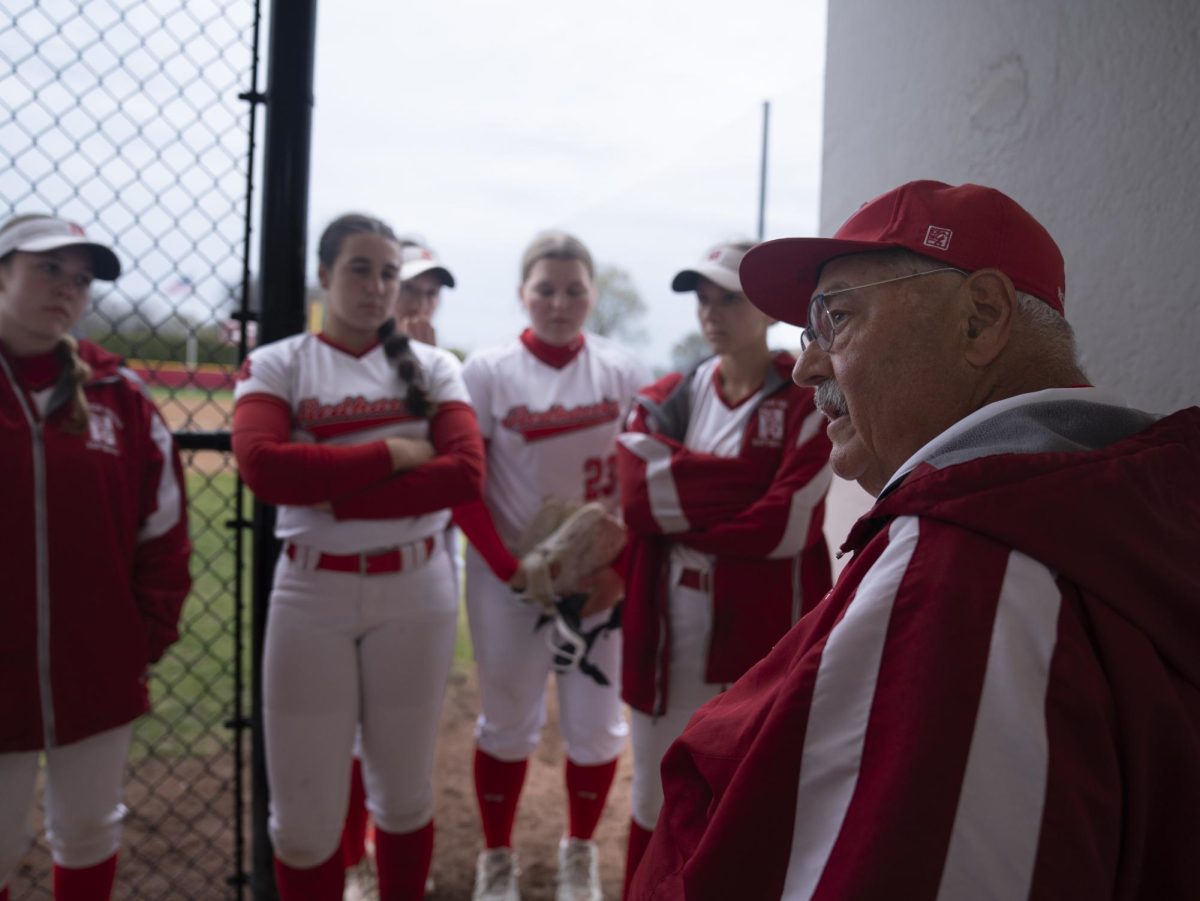Calling all female coaches
April 21, 2017
After high school, my mom lacked the funds to pursue higher education so she attended COD while working two jobs. With two years of COD under her belt, she then decided to attend Indiana University where she got her bachelor’s degree in biology. Post-college, my mom worked as a chemist until she got pregnant with me, and she decided to become a stay-at-home mom.
Now, I want to say right here and now: this was my mom’s choice. Staying home with her children was extremely important to my mom, and she did not do so under any “gender role” pressure. My mom has friends who have stayed in the workforce and she supports them fully.
But beyond that, as her final child is growing up and the costs of college are looming in the not-so-distant future, my mom is looking to reenter the workforce.
However, as she has told me, it is “intimidating” to begin working again when you have been out of that arena for almost 20 years. While she has a college degree, she has been graduated so long practices in her field have changed. Also, she fears that no one will look at her resume. Despite being out of the workforce, my mom has been a committed volunteer to a variety of organizations. However, many companies will not see these activities as valuable when she applies for a job. It seems like all of my mom’s hard work to get to IU was for nothing.
My mom’s story is not unlike that of many women in America today. In fact, according to the Pew Research Center, the number of stay-at-home mothers is rising for the first time in decades.
At Central, 66 percent of female faculty played sports in high school. Compared to all faculty, women make up 55 percent of all sports-playing faculty at Central. However, 80 percent of coaching positions at Central are held by men.
When I asked faculty why they think this is happening, 36 percent cited a woman’s obligation to raise her children, followed by 13 percent saying sexism. (About 27 percent said they were either unsure or did not respond to the question.)
Many responders to the survey wrote that they knew of female faculty who coached prior to having children but dropped out to spend time with children. While I obviously have no personal experience with childbearing, I know that many women feel the need to spend time with their children. And maybe dropping coaching but keeping a teaching job is a happy medium for women who wish to continue working but also want to be at home with their kid.
Another important statistic I found is that of faculty who don’t coach. One-third of men wish they did, while only 10 percent of women wish they did.
However, I am curious, and I don’t know the answer to this, why don’t those women want to coach? That 90 percent of women… do they not want to coach because they are mothers first because they aren’t interested or are they like my mom and feel intimidated to begin coaching after not doing it for so long?
I can imagine that at least a few fall into that final category. And I wish that weren’t the case. There should be benefits in place to allow women to be mothers and coaches. Maybe they can’t do both at the same time, but there should be ways to entice women back into coaching after their children are grown.
The way it is now, I have had two female coaches out of my nine school sports seasons. Both of those seasons were two of my favorites, with Coach Cheryl Schlumpf in seventh-grade basketball and Coach Heidi Heslinga in freshman year soccer and basketball being strong female role models who left an imprint on my world view.
But that’s not to say I didn’t gain anything from male coaches. Coach Dave Hollander in seventh-grade basketball and Coach Jim Braun in sophomore year soccer also made an impact on me and were great role models.
The point is, diversity is good. Yet with so few female coaches, the odds of a youth athlete getting a female coach is small.
If we look at the national sports arena, we are constantly hearing stories of professional male athletes disrespecting women. Imagine if those athletes had had a strong female coach during their formative high school years to teach them how to treat women like human beings and curb disgusting “locker room talk.”
Women have the choice to enter and leave coaching as they please, with children and other responsibilities entering their lives. However, we should not make social barriers preventing them from becoming coaches at any point in their lives because their impact on young athletes is too crucial to give up.







